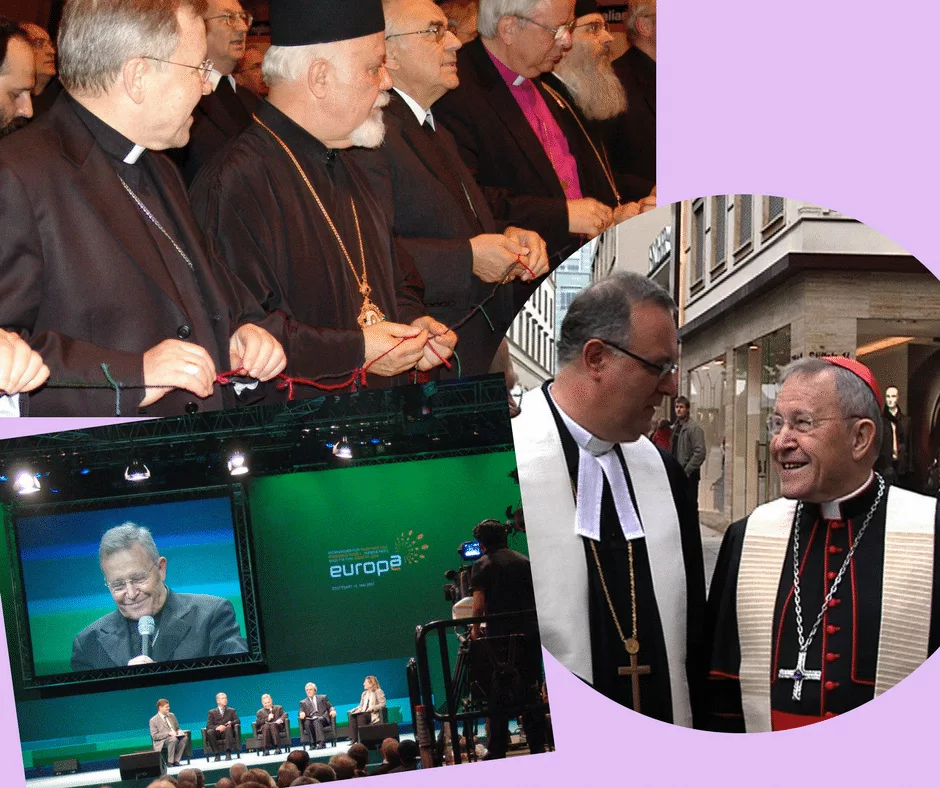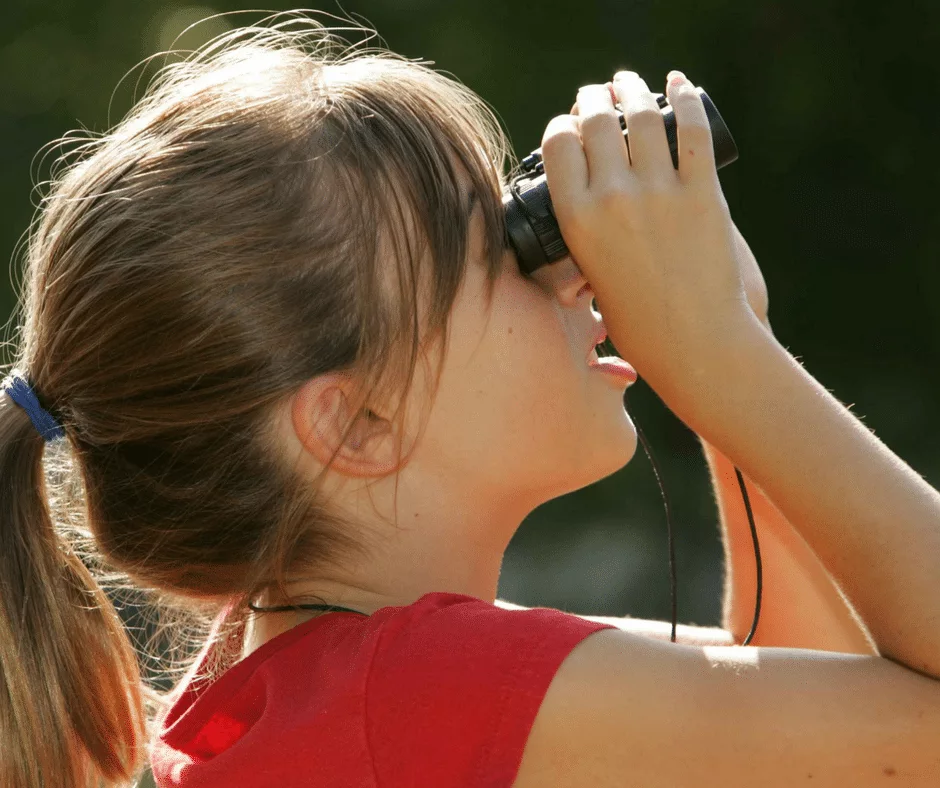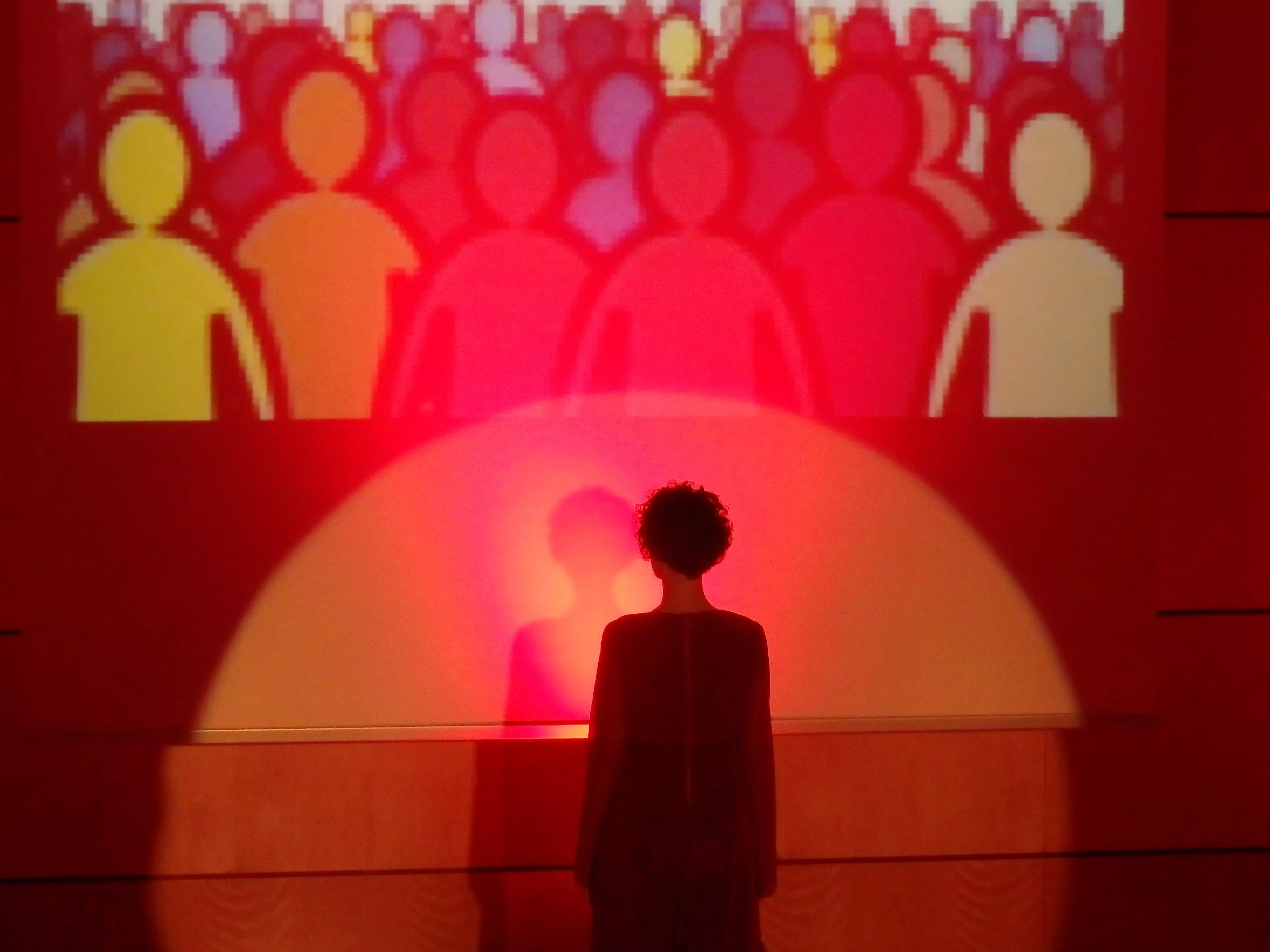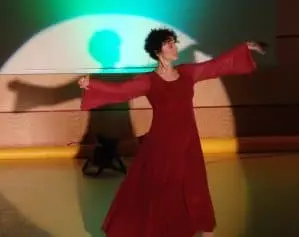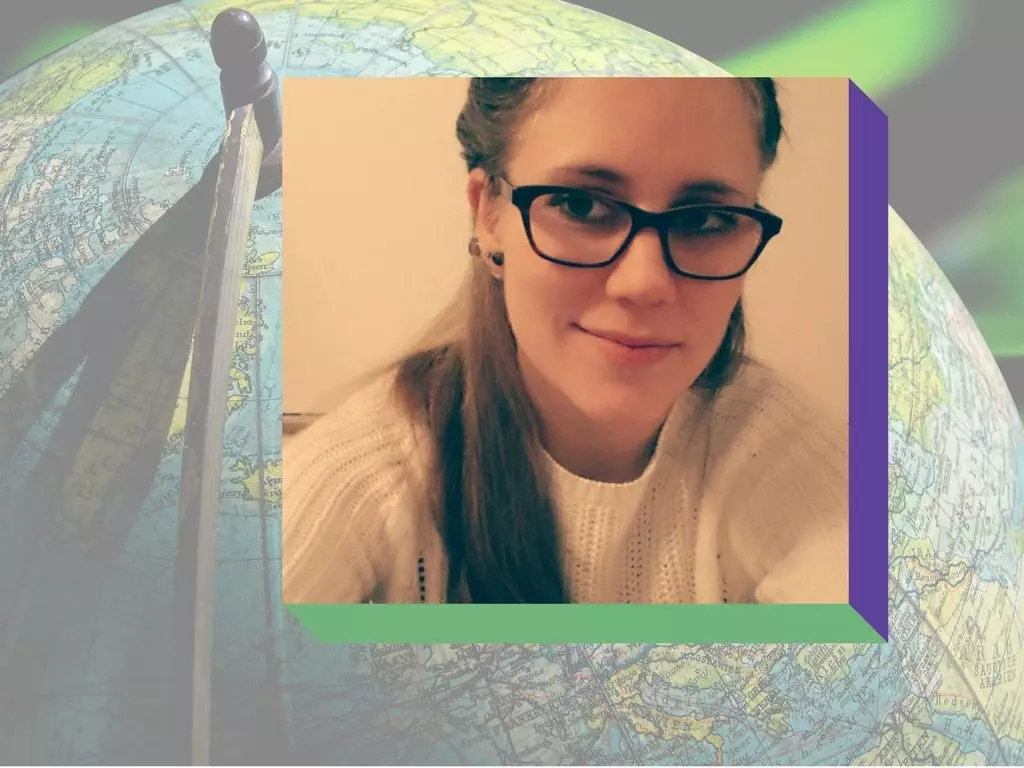
by Katharina Pinzer | Mar 14, 2018 | 2018 Europe Day, Experiences, reflections and interviews, News
May 9th is “Europe Day”. What comes to mind when you hear this date? How would you like this day to be celebrated by Europeans?
I see this day as an opportunity for European countries to dare to start transnational actions. We don’t need an elaborate programme, but even for example, a game with the idea of getting to know each other and discovering what we have in common, beyond our differences. This is why we need an informal “place of dialogue”. Feeling the connection between us would already reach this goal.
If you were president of the European Commission, what priorities would you put on the agenda for Europe’s cohesion?
No frontiers between countries. You feel at ease quickly in places to which you can travel with ease. The hospitality of one’s own country in welcoming others is an important premise for mutual understanding and appreciation. I would try to highlight the benefits and the great enrichment of an “open” Europe. This would require concrete examples and the small results already achieved could be made known.
Does Europe have a future? What contribution do you see, for example, from the Churches and the Spiritual Movements and Communities?
Openness and transparency! If the Church communicates openly what she plans to do with money, programmes etc., she will help citizens to trust more. If the Church was recognized as having the role of uniting people, it would be understood that she also contributes to removing borders from people’s hearts. Implement initiatives for young people, create spaces where local people can meet with migrants without propaganda programmes for refugees, but to highlight the multiplicity of countries and the variety of people. Europe has a future if people begin to understand that everyone can be a resource for the other because of our diversity, just use our various skills and abilities in the right way.
How do you see Europe in the context of today’s world politics?
Much has already been achieved in Europe. It is a gift to be able to travel to different countries within Europe and enjoy collaborations that have enabled the exchange of students and the social year of volunteering. These experiences should be made known, so that citizens of different countries can realize that this treasure exists. Europe should show its positive aspects more. We generally have more stable financial security and good social assistance. Should we not be grateful for what we already have?
It seems that young people are not very concerned about the future of Europe. Do you think this is true?
My experience as a young person is that you are often a bit overwhelmed by everything that happens around you all over the world. Only a few, those who have been involved in some way, are interested in politics. There are many problems in the world that young people cannot solve (at least so they think) and therefore they get involved more readily in things that promise immediate and visible results. Politics is often too complicated and sometimes uses language that is not accessible to most people. For young people there should be more incentives to take an interest in politics, with the prospect of being able to change something.
What do you think about populist tendencies? Would not it be better to walk together?
Given that today we are dominated by capitalism (I speak now of Germany), it is almost impossible that there are no populist tendencies. We tend only to want to obtain more and more profit, without taking into account the weakest. People who look only for profit cannot see any profit in supporting the weaker, because this takes time, work and commitment. The middle class is disappearing and the gap between rich and poor is widening. A cohabitation would be possible, but it must be understood that one can obtain profit even with different abilities. Maybe the profit will be lower, but you gain in human relationships, health, values etc. First of all we must understand that, by thinking only of ourselves, we can no longer be happy; that people who have less, but who can rely on each other, have found a very precious treasure.
Katharina is 24 years old and a teacher. She has work experience with migrants and currently lives in Nuremberg (Germany)
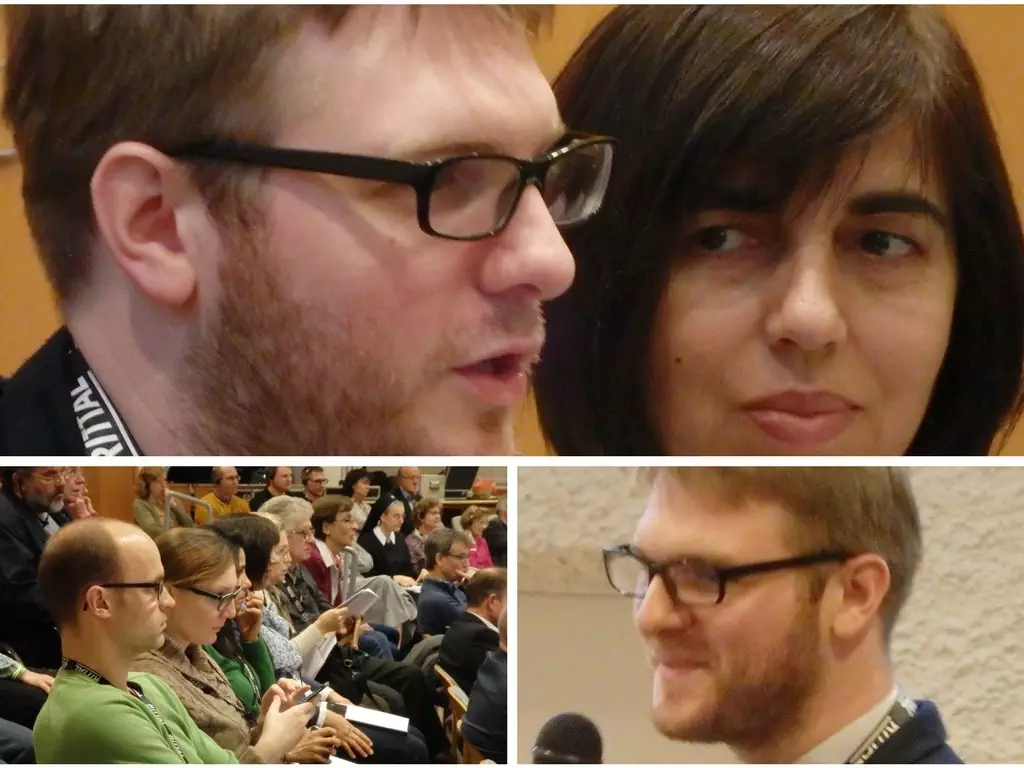
by Federico Castiglioni | Mar 12, 2018 | 2018 Europe Day, Experiences, reflections and interviews, News
If you were President of the European Commission (in other words if you had both the responsibility and the decision-making power), what priorities would be on your agenda to maintain and increase unity of peoples in Europe?
I believe the most urgent reform to be advanced on a European level is neither economic nor political in nature, but cultural. What is needed is to gather detailed information on the functioning of European institutions, as well as to source a substantial level of funding for programmes that explore our choice of coming together as one European entity as well as the historical significance of the European integration experiment. Investment in the field of culture (music, art, cinema) and targeting a young audience, is also fundamental. We need to create an awareness and feeling of belonging as European citizens.
How do you see the Churches and Christian Movements and Communities making their contribution to the future of Europe?
Christian Communities have the potential to contribute to the foundations on which the European project might rest in the future. The Christian message of community, social solidarity, civic responsibility which go hand in hand with spiritual growth as intended in the Christian religion is the foundation of our coming together united in our diversity. Europe was born from a vision of great statesmen who shared this spirit of brotherhood. It is this dimension which needs to be rediscovered.
by Federico Castiglioni (Rome, 17/11/88). Holds a Degree in Political Science and is currently pursuing a PhD in European and International studies at the University of Rome III. Federico has published a number of academic and lay articles on the theme of European topicality and the role of the European Union in a globalised world. He is also responsible for External Relations in the Italian section of JEF (Young European Federalists).
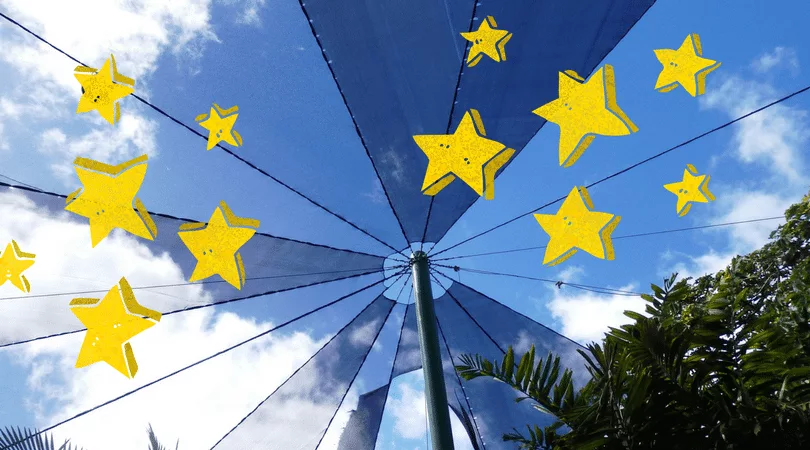
by TogetherforEurope | Mar 9, 2018 | 2018 Europe Day, Experiences, reflections and interviews, News
2018 Jeff Fountain May9 flyer>>
2018 May9 Europe Day presentation Jeff Fountain>>

by TogetherforEurope | Feb 23, 2018 | 2016 Munich, Experiences, reflections and interviews, News
“We marvel at the action of the Holy Spirit in our times”. Cardinal Kasper accompanied and supported Together for Europe network from its very beginnings. On the 30th June 2016, on the occasion of the last Congress in Munich, he shared his views on the importance of the network and his hopes for the future.
THE SPIRIT OF GOD IS STILL AT WORK TODAY
Dear friends, it is wonderful to be with you again and even more wonderful to see what has become of you since Stuttgart 2004. The dream of that time is becoming reality. The Spirit of God is still bearing fruit today. We have good reason to be grateful.
Our Dream
It all started on 31 October 1999 in Augsburg. Protestant and Catholic Christians made an official and collective declaration: together we acknowledge that Jesus is our salvation. Many said this declaration means nothing, that nothing has changed. No, things have changed. You are the result. Your movement is the fruit. Pope John Paul II was right. The declaration was a milestone.
A milestone is a marker along the way, not the goal. The next marker is ahead of us: Autumn 2016 in Lund, October 2017 in Wittenberg. Once again there are those who are skeptical. We say five hundred years of separation is enough. Something has to change. It would be betraying Jesus Christ and a disgrace for the world if we didn’t act upon our words.
We have a dream. We know that ecumenism is the Holy Spirit’s passage through the Church. We can rely on Him. It was He who initiated the movement for ecumenism, and He will lead it to the finish-line. Unity in reconciled diversity is possible. Tell those hesitant experts of division that we are the experts of unity. We have seen that even today unity is more possible than you think! Everyone needs to start moving; everyone needs to change their ways and way of thinking!
Together in Europe
Unity in the Church is now more important than ever because unity in Europe is in danger. “Together for Europe” is now more important than it has ever been. When I was young, after the disaster of the Second World War, Europe signified a peace project for us young people. Enemies were to become friends and we did. We were granted seventy years of peace and prosperity that our forefathers would never have dreamt of and it isn’t a dream; it’s reality. It’s our future.
Noone is denying the fact that Europe needs a flourishing economy to achieve this. An economic system is needed for life and survival but it is needed for life. It’s not the meaning of life itself which is why Europe needs more than an economic system. Europe isn’t just an economic community. Europe is a community of values. It has strong Christian foundations without which Europe cannot be called Europe. Many people have forgotten this. So, it is our duty to stand up for it again.
We cannot allow the ghosts of nationalistic egoism – believed to have died long ago – to rise from their graves and spread fear and terror. Every one of us loves our own homeland, our own language and our own culture. We’re not looking for uniformity. Europe’s diversity is the Europe’s wealth. Patriotism has nothing to do with nationalism which creates walls and fences. Nor does it mean withdrawing to a national “Island of the Blessed.” Patriotism is about being open; it allows itself to be enriched and seeks to enrich others. Whoever raises the drawbridge in front of it will soon starve.
Pope Francis recently said Europe is a “work in progress.” Europe was never simply a fait accompli; it has always been “in progress”. It has always been its strength to integrate other cultures: Celts, Germanic tribes, Normans, Slavs and Muslims whom we are not meeting for the first time today.
We were ecstatic after the fall of the Berlin Wall, hoping for borderfree communication, universal democracy and universal human rights. We are now facing the problems of the world becoming one which do not appear as abstract numbers but as real people with real faces. They are children of God. They present us with new challenges. We need to show them how attractive Christianity is, show them that being a Christian is a good thing. We can only do this together as Protestants and Catholics if we set aside our differences.
Is it possible? Yes, it is. As Christians we believe in the resurrection and the power of the Spirit of God. We believe that life is stronger than death and that love is stronger than hate. Jesus Christ is in our midst; he goes before us. As Christians we are witnesses of hope that we can live and work together as Christians and live and work together in Europe. What’s needed is not fear, but hope. Let us not be those who doubt, but those who build bridges and bring hope.
Cardinal Walter Kasper, Cardinal Emeritus of the Roman Curia and President of the Pontifical Council for the Promotion of Christian Unity
Download: TfE Munich 2016 – Keys for prompts of dialogue on Cardinal W. Kasper’s speech on 30 June 2016, Sr. Nicole Grochowina

by TogetherforEurope | Jan 22, 2018 | 2016 Munich, Experiences, reflections and interviews, News
Much research on the future of our continent has been conducted in areas such as culture, sociology and religion. The European Year of Cultural Heritage broadens this view. What is the specific contribution that Movements and Communities can offer in this regard?
Excerpt from a talk by Michael Hochschild entitled ‘Becoming Reconciled with our Future’, Together for Europe, 1 July 2016
Does hope have a future, or is our world embroiled in a hopeless cycle of crises and problems? If we give our future a chance, what sort of world can we imagine in this future? Would it be a world sustained by social and religious creative forces?
Let us consider:
1 If we do not want to get lost within our contemporary crises, we need to strengthen our hopes for the future.
2 In addition to hope the world we imagine needs to be characterised by something other than “modernity”, since the modern social order has been compromised leaving us without a clear direction forward. In order to secure a different future, we need to orient ourselves towards an improved society, one which could be called ‘post-modern’.
3 This can only happen under the influence of new cultural players. Here, I would like to invoke the prophetic contribution of new religious and social Movements, which are led by very high ideals. These Movements, thanks to these ideals, prefigure today how society and the Church can live together tomorrow.
There are two challenges that we can identify. We are experiencing a severe systemic crisis of modern society. Now, it is no longer sufficient to adapt to new situations but due to the radical changes in modern society, we need to see new ideas and ways of living. The second challenge addresses the new religious Movements as such, whose faith, engagement and trust are put to the test. If they pass, they will lead the way into a new world characterized by a sense of confidence in our future. But to achieve this goal the new religious Movements need to understand themselves in a new way, i.e. as creative social and cultural powers. Put simply: religious Movements need to become social Movements.
It is clear then, that what is needed, is to look forwards and to reconcile ourselves with our future.
In this, the new social and especially religious Movements come into play. These are important, as it is part of their very DNA to express a vision for the future. They not only offer viable alternative for living in society, they also loosen the restrictive shackles of modernity, which characterises today’s society. A member of such a Movement, which brings together the religious and social aspects, is equipped with a capacity to take responsibility for themselves and their environment.
Under these circumstances, it is their task not only to perform as religious, but also as social Movements. Through their faith, they achieve the possibility to harness their own cultural creative force. In this sense, religious Movements offer something that social Movements cannot since their engagement cannot be restricted to one single topic. On the contrary, being aware of God’s relationship to the whole world, there is an indefinite number of concerns that religious Movements can focus on. It is crucial that Movements and the Churches they belong to work together. Only a reconciled Church can bring about wider societal reconciliation in a credible way. Indeed, a single “Together for Europe” might not be sufficient to reach this goal; instead, a “Together for the world” is required in this case.

Prof. Dr. Michael Hochschild, director and professor for post-modern thought at Time-Lab, Paris/Institut d‘Études et de Recerches postmoderne,
studied education, sociology, philosophy, psychology and theology at the Universities of Hamburg, Frankfurt and Bielefeld.
To download the full talk, go to: 2016 07 01 TfE Munich – M. Hochschild on Becoming reconciled with our future>>

by TogetherforEurope | Nov 9, 2017 | 2017 Friends | Vienna, Austria, Experiences, reflections and interviews, News
“Hidden treasures” in Vienna
555th anniversary on 31st October 2017! What am I talking about? Let me explain: 500 years since Luther’s Reformation, 50 years since I was born and 5 years since I have moved to Austria.
When I realised this coincidence, I wondered how to celebrate the big round anniversary uniting my personal history with the ecumenical one.
I am a Swiss citizen; my mother is reformed and my father Catholic. My siblings and I were baptised into the Reformed Church, but after we went our separate ways. As a child I joined the Catholic Church, hence my strong passion for the unity of Churches. I now live in a Focolare community in Vienna.
Some time ago, in a meeting of consecrated people in the Ecumenical Centre in Ottmaring, attended by the Lutheran Bishop Emeritus Herwig Sturm, I presented a performance on Luther, based on images, spoken word and dance (I am a ballet dancer by profession). It occurred to me, why not celebrate my birthday by offering the same performance to the public?
-

-
Roswitha M. Oberfeld Foto: privat
-

-
Roswitha M. Oberfeld Foto: privat
-

-
Roswitha M. Oberfeld Foto: privat
On 29th October, more than 60 people gathered in Am Spiegeln, in the Meeting Centre of the Focolare Movement in Vienna, for my ‘ecumenical birthday show’. Instead of bringing birthday gifts, I asked my guests to offer a contribution towards translations of the meeting of Friends of the ecumenical network Together for Europe which was to take place in the Meeting Centre a few days after my birthday.
What a joyful occasion it has been to bring the money raised through the show to the International Steering Committee of Together for Europe!
Roswitha Oberfeld, Vienna (Austria)




